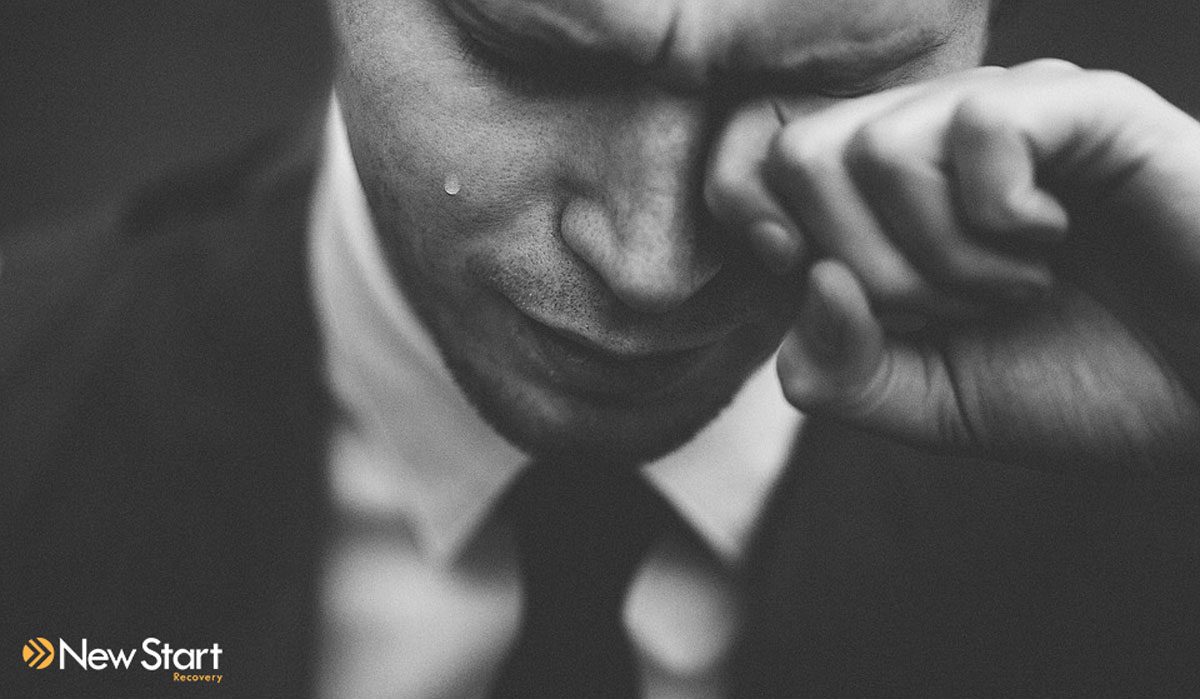Heartbreak is one of the most difficult things to get over in this world. Unfortunately, it’s not uncommon. We’re all human and we’re all always changing and growing. And sometimes, someone you once shared your life with starts to grow in a different direction than you. As hard as it is, this is actually pretty common in recovery. Recovery is a huge life change full of self-discovery and growth. Sometimes that life change causes a love change as well. Breakups happen. And while digging into a gallon of Ben & Jerry’s Chunky Monkey might really help ease the pain, we have a few more tips for dealing with breakups in recovery.

Go Ahead and Cry
So many of us like to put up a front and pretend that we’re just fine after a breakup, especially if we were the one broken up with. But it’s important to understand that it’s okay to be sad over breakups. If you’re sad or hurt by a breakup, let yourself feel those emotions. Closing yourself off and pushing your feelings aside will only work temporarily. Eventually, it’ll be too much to handle and can manifest into a relapse.
While it’s important for your emotional health to let yourself feel sad, it’s also important to realize the difference between sadness and depression. If you’re struggling with depression, don’t hesitate to reach out for help. Not only can depression make it seem impossible to get through your day, but it can also cause a person to self-medicate with drugs or alcohol.
Reach Out to Others
Breakups can seem like very personal things, but we can heal best when we get support from others. Friends and other loved ones can help by listening to you vent. They can also give you a shoulder to cry on. Your sponsor (if you have one) is also a good candidate to reach out to when dealing with a breakup, as they’re not just there to help you through the program but also to offer emotional support. And because breakups can be relapse triggers, it’s actually recommended that you do reach out to your sponsor or recovery support group so they can help prevent that relapse.
While reaching out to loved ones can really help in times of need, it’s also important that you remember your friends and family have their limits too. If you feel that you might need more professional help in the wake of a breakup, don’t hesitate to reach out to a therapist or counselor.
Listen to Sad Music
Have you ever realized that sad songs make you feel better when your mood is low? Well, there’s actual research behind that phenomenon. We listen to sad songs when we’re sad because we can relate to them. And we also feel that the relation is mutual. We relate to sad songs and sad songs relate to us. What I mean is, someone else is describing the pain we’re feeling through their song. Recognizing that fact helps us feel as if we’re not alone in our sadness. That’s why people who go through breakups create breakup playlists.
Listening to music also gives us an outlet to let those emotions flow from ourselves. It’s something that can be done in solitude, yet we don’t feel alone. And because we feel as if we’re not alone in our sadness, we start to feel better. It normalizes our grief. So, go ahead and make yourself a breakup playlist, put on those headphones, and let the music carry out your emotions.
Did You Know?
Breakups aren’t the only things music helps with. Music therapy is actually a very common method in recovery. Music gives people an outlet to express their emotions without having to explicitly describe them. It’s also a fun and unconventional way to build fellowship in recovery. Many recovery programs offer some sort of music therapy to help their clients heal. New Start actually partners with Rock to Recovery to incorporate music therapy in our residential program.
Set and Maintain Boundaries
There’s little worse for a relationship than the dreaded on-again off-again cycle. It may seem like a good idea to give someone another chance or rebuild your relationship, and sometimes that may work. But, in general, the on-again off-again thing does not work and only makes the situation worse for both parties. This cycle is especially harmful in recovery because you’ll be focusing on your toxic relationship rather than on yourself and your sobriety. Your sobriety should be your number one priority. Toxic relationships and constant breakups just set you up for relapse and emotional turmoil.
Instead of succumbing to the cycle, set boundaries for yourself and your ex. For example, don’t maintain contact unless absolutely necessary (such as if you have to co-parent with them). Later on, when you both feel healed and strong enough, you may be able to be friends with an ex. But until then, maintain your boundaries.
Know Your Worth
Many recovering addicts and loved ones of addicts struggle with co-dependency. Breakups will intensify the various complications surrounding that struggle. If you’re dealing with a breakup, it’s important to remember your own self-worth. Your worth does not depend on anyone else and it is not lowered because of a breakup. Try to boost your own self-esteem and strengthen your own self-image so that you can move on with your life and focus on your recovery.
It’s also important to realize that if someone can walk away from you, then they don’t belong in your life. Let them do so. Perhaps you grew apart and you’re no longer good for each other. Don’t spend too much time obsessing over it and trying to justify it. Again, breakups happen because we’re human. We change and grow. Let yourself do so, and let your ex-partner do the same.

Let me just state the obvious again here and say that breakups are hard. But you can’t let them compromise your self-worth, your life, or your recovery. So, grab that ice-cream, put on some sad music, call your sponsor or your most supportive friends, and give yourself time to heal.
Breakups are huge relapse triggers. If a breakup (or anything else) pushed you into relapse, don’t hesitate to reach out for help. New Start can help you claim your recovery again. Call us at 855-737-7363 or reach out to us on our live chat.

